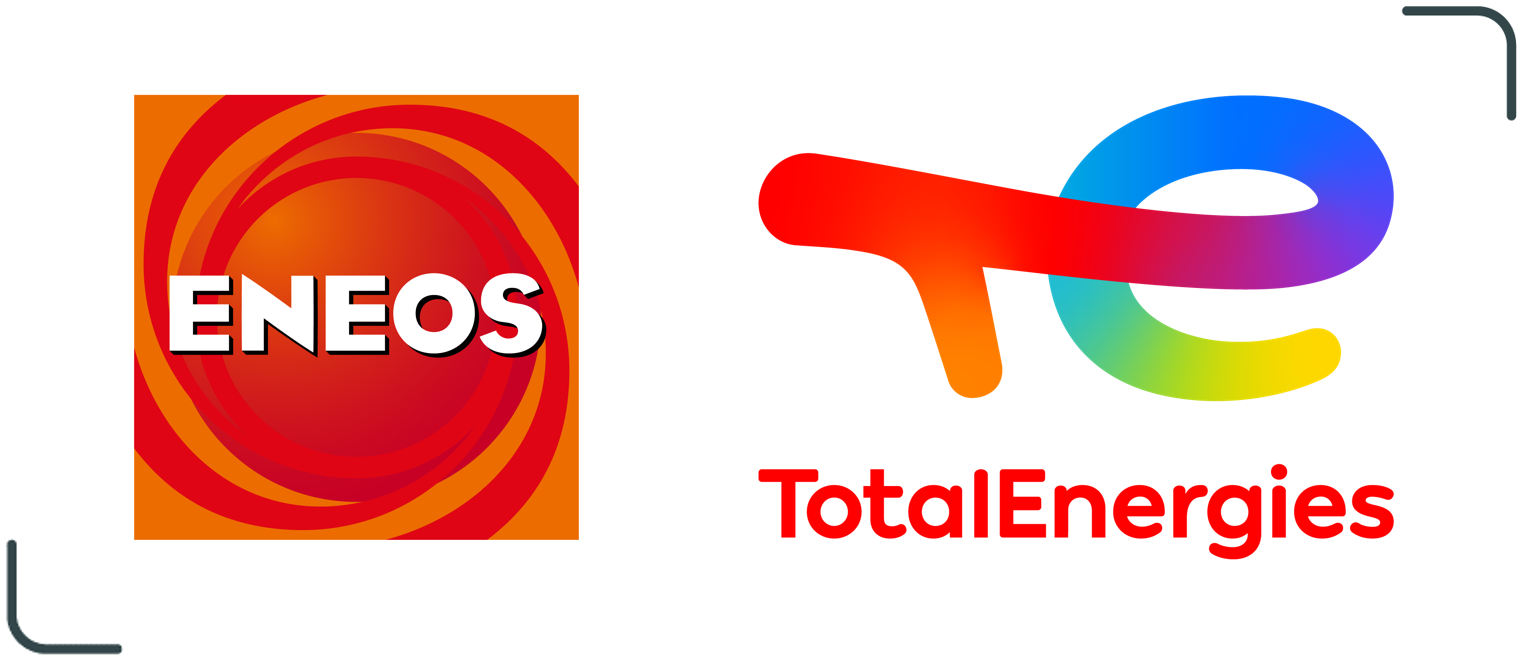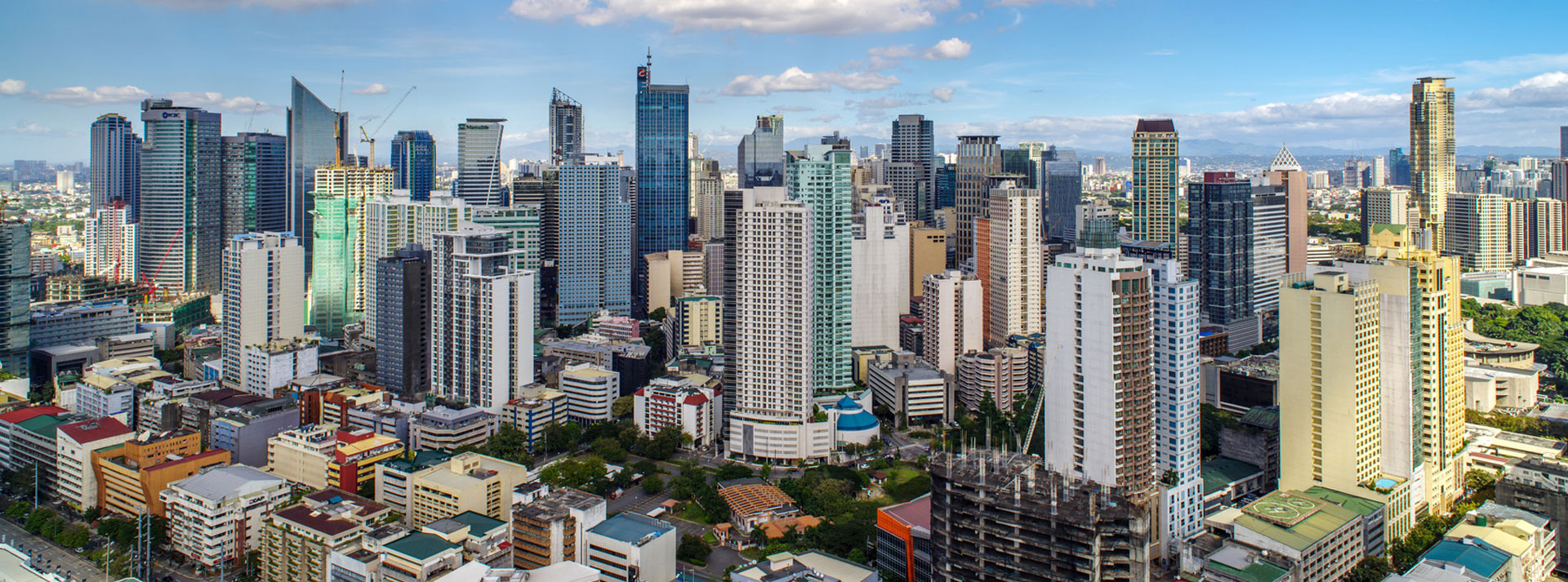
markets Philippines
In the Philippines, as a result of hefty taxes and the absence of subsidies, electricity tariffs are very volatile. Since 2004, they have escalated at an annual average rate of 2.4%. The government expects demand to rise by 6% each year, with supply struggling to keep up.
Hefty taxes and the absence of subsidies lead to high and volatile tariffs in the Philippines
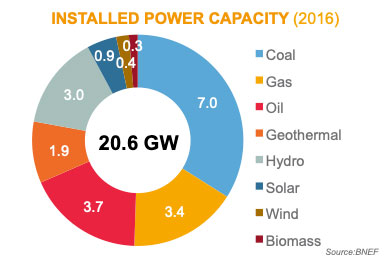
Installed Power Capacity (2016)
Energy sector overview
- Diverse generation mix, but supply capacity is below demand.
- About 45.9% of demand comes from C&I customers.
- More than 40% of companies rely on diesel generators.
- The government expects demand to rise by 6%/year in 2016-40, with supply struggling to keep up.
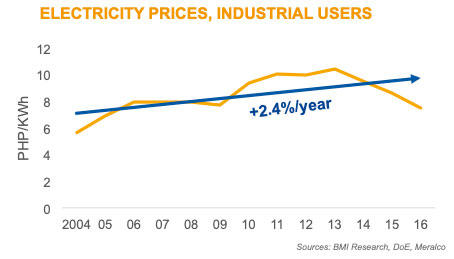
Electricity Prices, Industrial Users
Electricity tariffs evolution (C&I)
- Tariffs are not subsidized. They edged up in 2004-13, before levelling off recently in line with lower coal prices.
- Currently: 18-22 US cents/kWh (among highest globally).
- Planned changes in fuel taxes are likely to shore up tariffs for C&I customers.
Regulation
Government Lead Initiatives:
- Philippines Energy Plan 2012-2030: to reach 50% renewable energy in primary mix by 2030, with +9.9 GW new renewable generation capacity, including 5.4GW hydro, 2.3 GW wind, 1.5GW geothermal, 350 MW solar (already surpassed) and 277 MW biomass
- Policy makers are considering Renewable Portfolio Standards (RPS) to further develop solar and wind
- Conditional greenhouse gas reduction target of 70% below business as usual (BAU) levels by 2030 (2015)
Implementation
- Net metering (Res 9/2013) for < 100 kW from renewable energy sources. Contract is signed with the distribution utility, remuneration depends on the blended generation cost of the off-taker
- Bilateral contracts combined to high power prices are a strong driver for PV development in the next years
- RPS drafted by the Department of Energy in June 2016: Distribution Utilities and Cooperatives covered by the RPS would be required to have a 35% share of renewable in their portfolio by 2030.
- The RPS for off-grid areas is expected to spur socio-economic development and help address environmental concerns in the countryside.
Project Reference
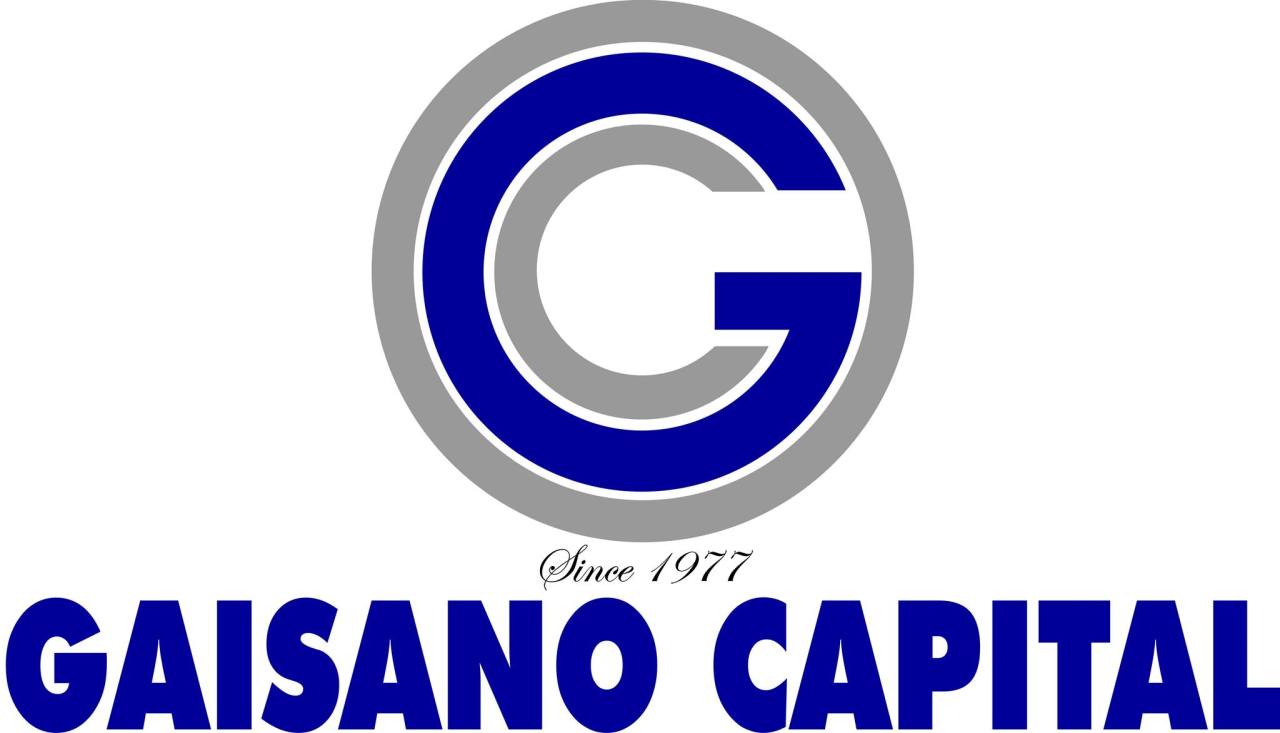
Gaisano Capital is a chain of malls and supermarket with over 35 branches all over the Philippines.
View more
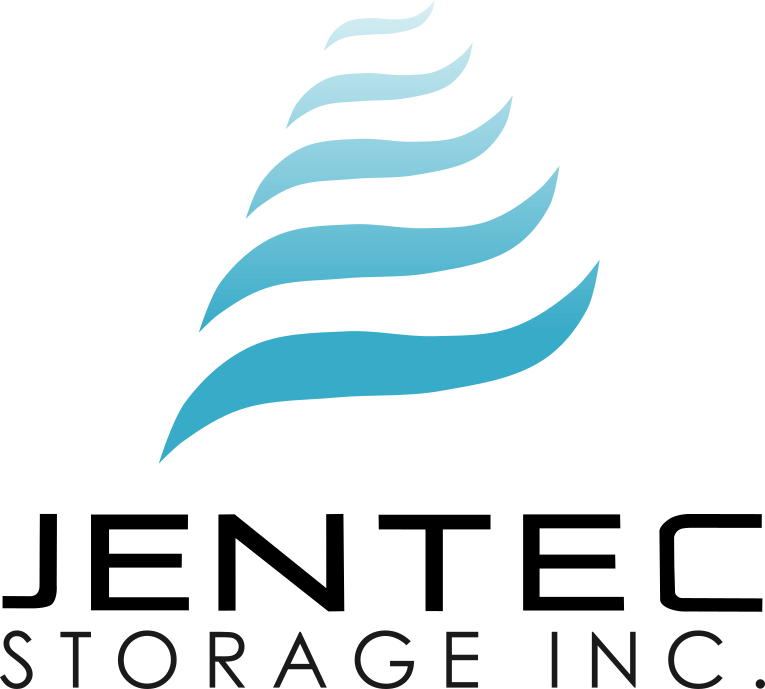
Jentec Cold Storage is a network of cold chain facilities servicing food and manufacturing companies for safe, secure, healthy and efficient storage, logistics and distribution of food product across the country. Efficiency, Health and Safety, and care for environment are primary commitment of the company.
View more
